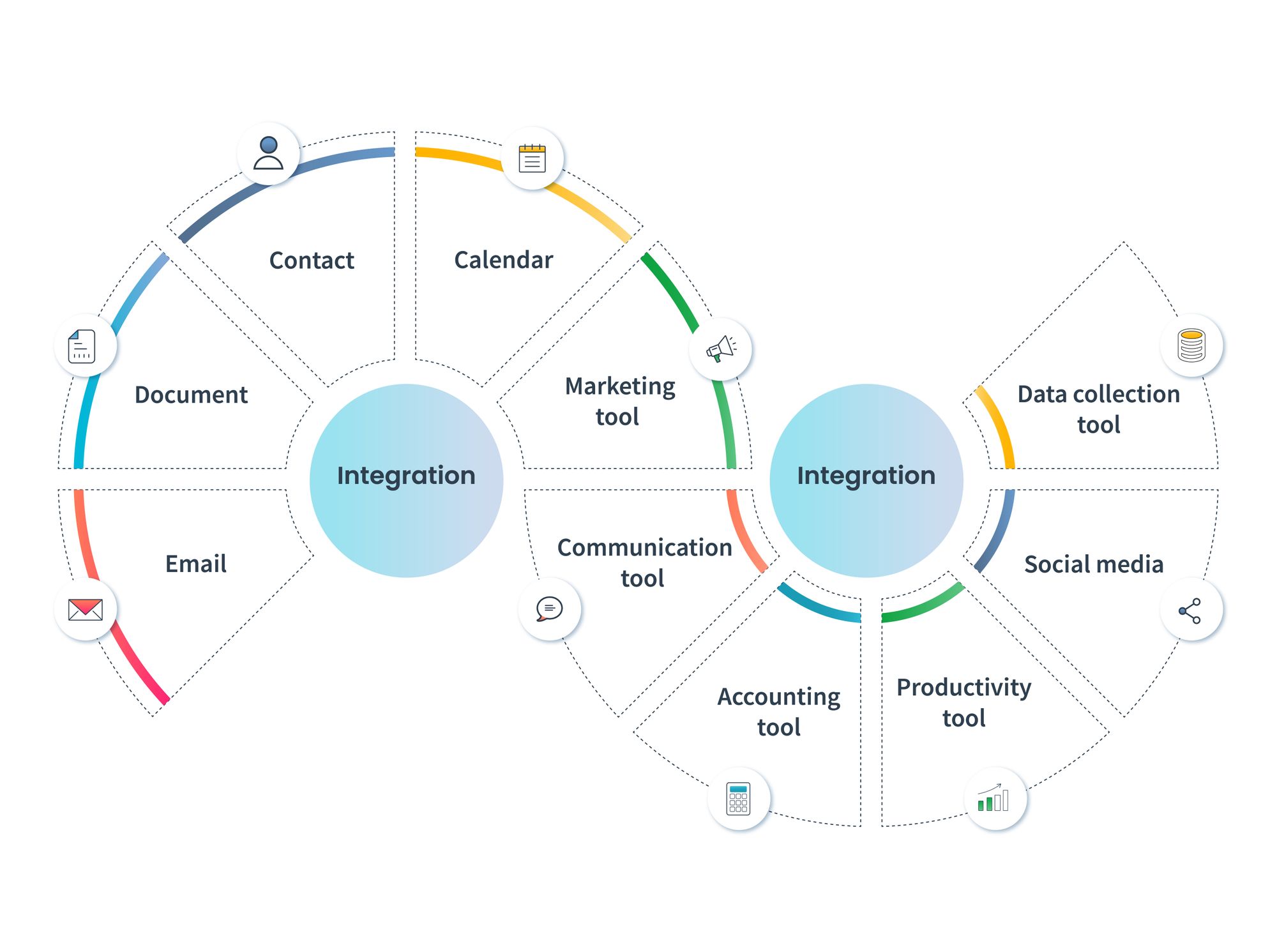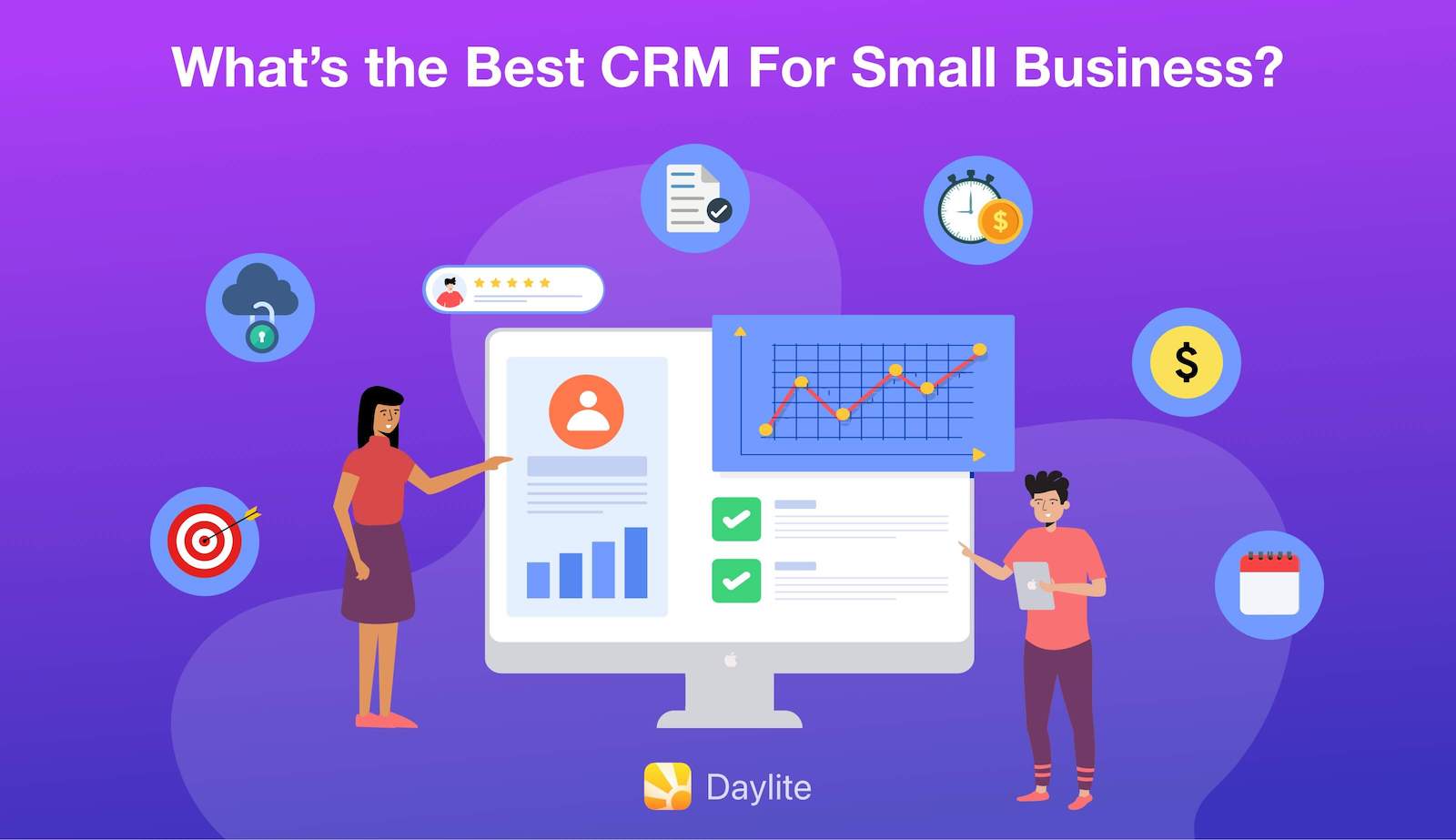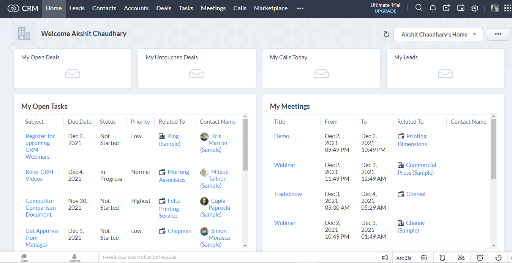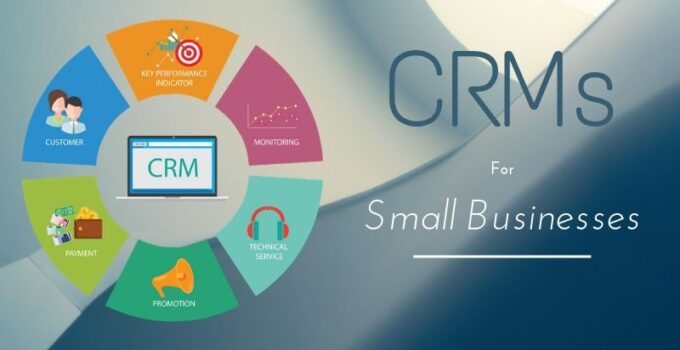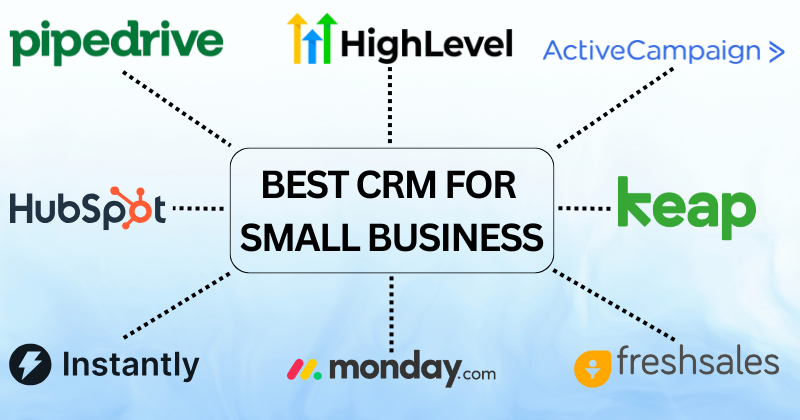Supercharge Your Small Business: How CRM Fuels Growth and Customer Loyalty
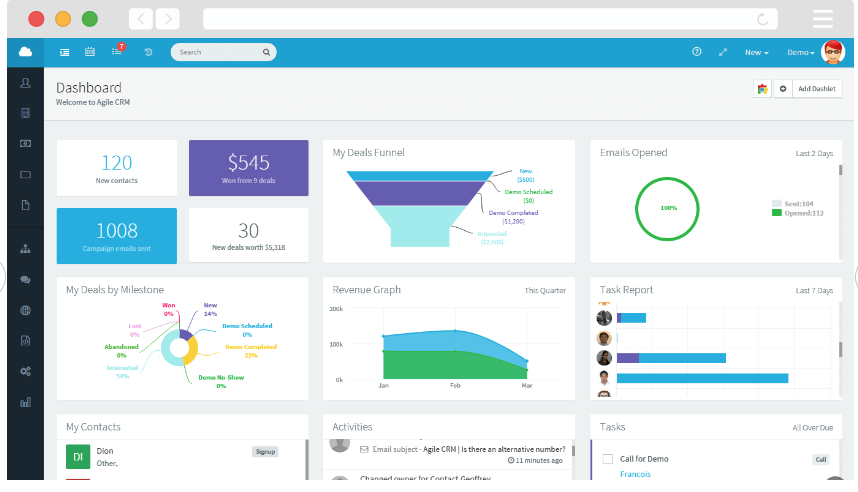
Supercharge Your Small Business: How CRM Fuels Growth and Customer Loyalty
Running a small business is a rollercoaster, isn’t it? One minute you’re celebrating a new client, the next you’re juggling invoices, emails, and trying to remember what you discussed with that potential customer last week. It’s a lot to manage, and it’s easy for things to slip through the cracks. That’s where a Customer Relationship Management (CRM) system comes in – it’s not just for the big guys anymore! In fact, a CRM can be a game-changer for small businesses, acting as a central hub to organize, automate, and ultimately, grow your operations.
This comprehensive guide will delve into the world of CRM for small businesses. We’ll explore what CRM is, why it’s crucial for growth, how to choose the right system, and how to implement it effectively. Get ready to transform your business from a chaotic scramble to a well-oiled machine, all while fostering stronger customer relationships and boosting your bottom line.
What is CRM? Demystifying the Acronym
Let’s start with the basics. CRM stands for Customer Relationship Management. At its core, a CRM system is a technology that helps businesses manage and analyze customer interactions and data throughout the customer lifecycle. Think of it as a central database for all your customer-related information.
This includes:
- Contact Information: Names, addresses, phone numbers, email addresses, and social media profiles.
- Interaction History: Records of all communications, including emails, phone calls, meetings, and support tickets.
- Sales Data: Deals, opportunities, and sales pipelines.
- Marketing Data: Marketing campaigns, lead sources, and customer behavior.
- Customer Preferences: Notes on customer needs, interests, and past purchases.
Essentially, a CRM provides a 360-degree view of your customers. This allows you to understand their needs, preferences, and behaviors, enabling you to personalize interactions, improve customer service, and drive sales growth. It’s a powerful tool that moves you away from scattered spreadsheets and sticky notes, and towards a centralized, organized, and actionable database.
Why CRM is a Must-Have for Small Business Growth
In the competitive landscape of today’s business world, small businesses need every advantage they can get. A CRM system provides several key benefits that can significantly contribute to growth:
Improved Customer Relationships
This is perhaps the most significant advantage. By centralizing customer data, a CRM allows you to:
- Personalize interactions: Accessing a customer’s history allows you to tailor your communication to their specific needs and preferences.
- Provide better customer service: Quickly access customer information to resolve issues and provide timely support.
- Build stronger relationships: Demonstrating that you remember and understand your customers fosters loyalty and encourages repeat business.
Happy customers are more likely to become loyal customers, and loyal customers are the lifeblood of any successful small business. A CRM helps you cultivate these vital relationships.
Increased Sales Efficiency
CRM systems streamline the sales process, helping you close more deals and increase revenue:
- Lead management: Track leads, qualify them, and nurture them through the sales pipeline.
- Sales automation: Automate repetitive tasks like sending follow-up emails and scheduling appointments, freeing up your sales team to focus on closing deals.
- Sales forecasting: Gain insights into your sales pipeline to predict future revenue and make informed business decisions.
- Improved Sales Performance: CRM provides data insights to help the sales team understand their strengths and weaknesses and improve their performance.
By automating sales processes and providing valuable insights, a CRM helps your sales team work smarter, not harder, leading to increased sales and revenue.
Enhanced Marketing Effectiveness
A CRM system empowers your marketing efforts by providing valuable customer data:
- Targeted marketing campaigns: Segment your customer base and create targeted marketing campaigns based on their interests, demographics, and behavior.
- Improved lead generation: Track lead sources and identify the most effective marketing channels.
- Marketing automation: Automate marketing tasks like email marketing and social media posting to nurture leads and engage customers.
- Personalized Messaging: CRM data helps to tailor messages to specific customer segments, increasing engagement and conversion rates.
By leveraging customer data, a CRM allows you to deliver the right message to the right customer at the right time, maximizing the impact of your marketing efforts.
Improved Data Management and Organization
Say goodbye to messy spreadsheets and scattered information. A CRM centralizes all your customer data in one secure location:
- Data accuracy: Reduce errors and ensure data consistency across your organization.
- Improved accessibility: Easily access customer information from anywhere, at any time.
- Better collaboration: Share customer data with your team and improve collaboration.
Centralized data management improves efficiency, reduces errors, and makes it easier for your team to work together effectively.
Better Decision-Making
CRM systems provide valuable insights into your business performance:
- Track key performance indicators (KPIs): Monitor sales, marketing, and customer service metrics to identify areas for improvement.
- Analyze customer behavior: Understand customer preferences and buying patterns to make informed business decisions.
- Identify trends: Spot emerging trends and opportunities to stay ahead of the competition.
By providing data-driven insights, a CRM empowers you to make informed decisions that drive growth and improve your bottom line.
Choosing the Right CRM for Your Small Business
With so many CRM systems available, choosing the right one can feel overwhelming. Here’s a breakdown of key factors to consider when selecting a CRM for your small business:
1. Assess Your Needs and Goals
Before you start comparing CRM systems, take the time to understand your business needs and goals. Consider the following questions:
- What are your primary business goals? Are you focused on increasing sales, improving customer service, or streamlining marketing efforts?
- What are your biggest pain points? What tasks are time-consuming or inefficient?
- What features do you need? Do you need lead management, sales automation, marketing automation, or customer service features?
- How many users will need access to the CRM? This will impact the pricing and scalability of the system.
- What is your budget? CRM systems range in price, so determine how much you can afford to spend.
By identifying your needs and goals, you can narrow down your options and choose a CRM that is the best fit for your business.
2. Consider Your Budget
CRM systems vary significantly in price, from free or freemium options to enterprise-level solutions. Determine your budget and choose a system that offers the features you need at a price you can afford. Keep in mind that the cost of a CRM includes not only the software but also implementation, training, and ongoing maintenance.
3. Evaluate Features and Functionality
Make a list of the features you need and compare the features offered by different CRM systems. Consider the following:
- Lead management: Lead capture, lead scoring, and lead nurturing.
- Sales automation: Task automation, email templates, and sales pipeline management.
- Marketing automation: Email marketing, social media integration, and campaign management.
- Customer service: Help desk, support ticket management, and knowledge base.
- Reporting and analytics: Customizable dashboards, sales reports, and customer insights.
- Integration capabilities: Integration with other business tools, such as email marketing platforms, accounting software, and e-commerce platforms.
- Mobile access: Access to the CRM from your smartphone or tablet.
Choose a system that offers the features you need to achieve your business goals.
4. Ease of Use and User Experience
A CRM system should be easy to use and intuitive. Consider the following:
- User interface: Is the interface clean, easy to navigate, and user-friendly?
- Ease of setup: How easy is it to set up the system and import your data?
- Training and support: Does the vendor offer training and support to help you get started?
- Customization options: Can you customize the system to fit your specific needs?
If the system is difficult to use, your team won’t use it, and you won’t reap the benefits of a CRM. Prioritize ease of use and a positive user experience.
5. Scalability and Flexibility
Choose a CRM system that can grow with your business. Consider the following:
- Scalability: Can the system handle an increasing number of users and data as your business grows?
- Customization: Can you customize the system to meet your evolving needs?
- Integration capabilities: Does the system integrate with other business tools you may use in the future?
Choose a system that is flexible and can adapt to the changing needs of your business.
6. Research Vendor Reputation and Reviews
Before making a decision, research the vendor’s reputation and read reviews from other users. Consider the following:
- Vendor reputation: Does the vendor have a good reputation for providing reliable software and excellent customer support?
- Customer reviews: What do other users say about the system and the vendor’s support?
- Security and privacy: Does the vendor have strong security measures in place to protect your data?
Choosing a reputable vendor ensures that you receive reliable software and excellent customer support.
Implementing a CRM System: A Step-by-Step Guide
Once you’ve chosen a CRM system, it’s time to implement it. Here’s a step-by-step guide to help you get started:
1. Plan Your Implementation
Before you start implementing the CRM, create a detailed plan. This plan should include:
- Goals and objectives: What do you hope to achieve with the CRM?
- Timeline: Set a realistic timeline for implementation.
- Resources: Identify the resources you need, such as staff, training, and budget.
- Data migration plan: Plan how you will migrate your existing data into the CRM.
- Training plan: Plan how you will train your team on how to use the CRM.
A well-defined plan will help you stay on track and ensure a successful implementation.
2. Data Migration
Migrating your existing data into the CRM can be a complex process. Here’s what to consider:
- Data cleaning: Clean your data to remove duplicates, errors, and outdated information.
- Data mapping: Map your existing data fields to the corresponding fields in the CRM.
- Data import: Import your data into the CRM.
- Data validation: Validate your data to ensure that it has been imported correctly.
Take the time to clean and organize your data before importing it to ensure data accuracy.
3. Customize Your CRM
Customize the CRM to fit your specific business needs. This may include:
- Adding custom fields: Add custom fields to capture the specific data you need.
- Configuring workflows: Configure workflows to automate tasks and streamline processes.
- Setting up integrations: Integrate the CRM with other business tools.
- Personalizing dashboards: Customize dashboards to display the most important information.
Customization is key to making the CRM work for your business.
4. Train Your Team
Provide thorough training to your team on how to use the CRM. This should include:
- Basic training: Teach your team how to navigate the system and enter data.
- Advanced training: Provide training on advanced features, such as sales automation and marketing automation.
- Ongoing support: Provide ongoing support and training to help your team use the CRM effectively.
Adequate training is crucial for ensuring that your team uses the CRM effectively.
5. Monitor and Optimize
Once the CRM is implemented, monitor its performance and make adjustments as needed. This may include:
- Tracking key performance indicators (KPIs): Track sales, marketing, and customer service metrics to identify areas for improvement.
- Gathering feedback: Gather feedback from your team on how to improve the CRM.
- Making adjustments: Make adjustments to the system as needed to optimize its performance.
Continuous monitoring and optimization will ensure that the CRM continues to meet your business needs.
Top CRM Systems for Small Businesses
Here are a few popular CRM systems that are well-suited for small businesses, along with their key features and pricing (please note that pricing can change, so it’s always best to check the vendor’s website for the most up-to-date information):
- Zoho CRM: A comprehensive CRM with a wide range of features, including sales automation, marketing automation, and customer service tools. It offers a free plan for up to three users and affordable paid plans.
- HubSpot CRM: A user-friendly CRM with a focus on marketing and sales. It offers a free plan with basic features and paid plans with advanced features.
- Freshsales: A sales-focused CRM with features like lead scoring, sales pipeline management, and phone integration. It offers a free plan and affordable paid plans.
- Pipedrive: A visual sales pipeline CRM that’s easy to use and focuses on deal management. It offers affordable paid plans.
- Salesforce Essentials: A scaled-down version of Salesforce, designed for small businesses. It offers features like contact management, lead management, and sales tracking. It offers paid plans.
The best CRM for your small business will depend on your specific needs and budget. Research these and other options to find the perfect fit.
CRM: Beyond the Technology – Fostering a Customer-Centric Culture
While the technology is important, it’s crucial to remember that a CRM is more than just software; it’s a tool to help you build and nurture customer relationships. To truly leverage the power of a CRM, you need to foster a customer-centric culture within your small business. This means:
- Putting the customer first: Make the customer the focus of all your decisions and actions.
- Empowering your team: Give your team the authority and resources they need to provide excellent customer service.
- Collecting and analyzing customer feedback: Regularly solicit feedback from your customers and use it to improve your products, services, and customer experience.
- Personalizing every interaction: Use the data from your CRM to personalize your communication and tailor your offerings to each customer’s needs.
- Building trust and loyalty: Demonstrate that you care about your customers and are committed to their success.
By embracing a customer-centric culture, you can transform your CRM from a simple data repository into a powerful engine for growth and customer loyalty.
The Future of CRM for Small Businesses
The world of CRM is constantly evolving, and small businesses can expect to see exciting developments in the years to come:
- Artificial Intelligence (AI): AI-powered CRM systems will become more sophisticated, offering features like predictive analytics, automated customer service, and personalized recommendations.
- Increased Automation: Automation will continue to play a major role, streamlining even more tasks and freeing up business owners and employees to focus on higher-value activities.
- Integration with Emerging Technologies: CRM systems will integrate with new technologies like the Internet of Things (IoT) and virtual reality (VR) to provide even more personalized customer experiences.
- Mobile-First Approach: CRM systems will become even more mobile-friendly, allowing small business owners to access and manage their customer data from anywhere.
- Focus on User Experience: CRM vendors will continue to improve the user experience, making their systems even easier to use and more intuitive.
Staying informed about these trends will help small businesses stay ahead of the curve and maximize the benefits of their CRM systems.
Conclusion: Unleash the Power of CRM for Small Business Success
In conclusion, a CRM system is an indispensable tool for small businesses looking to grow, improve customer relationships, and streamline their operations. By choosing the right CRM, implementing it effectively, and fostering a customer-centric culture, you can transform your business from a struggling startup to a thriving enterprise.
Don’t let your business be held back by disorganized data and inefficient processes. Embrace the power of CRM and watch your small business flourish. The journey might seem daunting at first, but the rewards – increased sales, loyal customers, and a more efficient and enjoyable work environment – are well worth the effort. Take the first step today and start exploring the possibilities that CRM can unlock for your small business. Your future success may depend on it!
Ready to get started? Research the CRM systems mentioned above, assess your needs, and create a plan for implementation. You’ll be amazed at the difference a well-implemented CRM can make. Don’t delay – the sooner you start, the sooner you’ll see the results!

